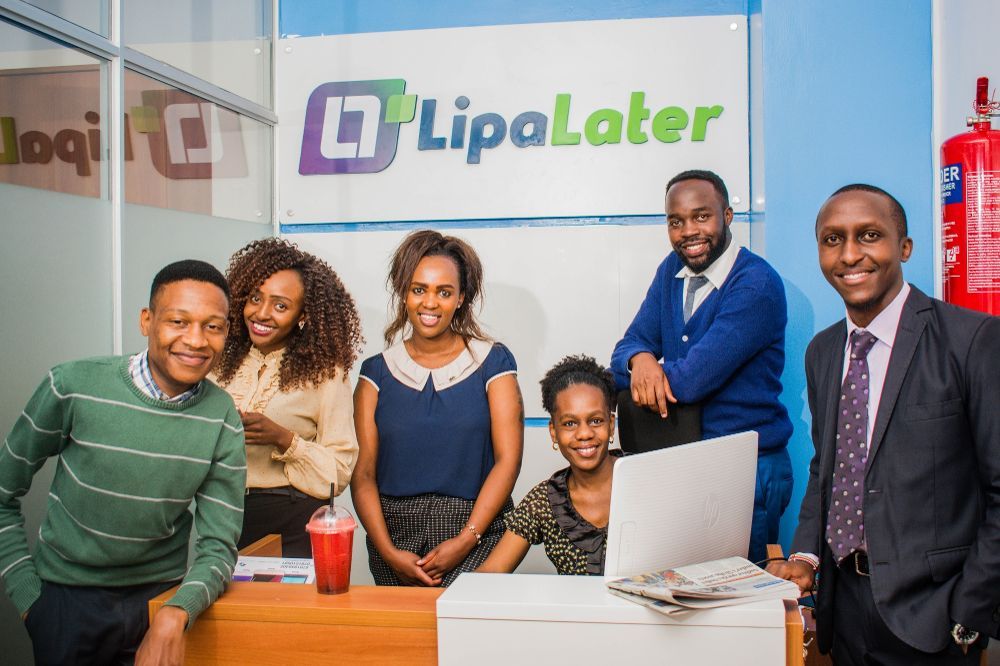Lipa Later, a Kenyan BNPL startup raises $12m to expand credit footprint in Africa

Lipa Later, a Kenyan tech-led consumer credit startup, raised $12 million in pre-Series A funding. This brings the company’s total funding to about $16 million to date.
The startup says it will use this new funding to expand into Tanzania, Nigeria, South Africa, and Ghana and deepen its presence in its existing markets which are Kenya, Uganda, and Rwanda.
The funding, which is a mix of equity and debt, was co-led by Green House Capital and Lateral Frontiers VC, which led the company’s seed investment, other participants included Cauris Finance, SOSV IV LLC, Sayani Investments, and Axian Financial Services.
The new funding of $12m adds to an undisclosed 2020 investment by Tokyo-headquartered Uncovered Fund, which invests in early and seed-stage startups in Africa. Lipa Later was among five startups that received the funding.
From Security outfit to BNPL
Founded in 2018 by Eric Muli, Lipa Later started as a program to help internal employees access mobile phones that’d allow them to be efficient at work. Muli had initially founded Alpha Force Security Ltd, a company that dispatches security guards to homes and offices in Kenya.
In 2017, Alpha Force started a mobile phone financing program for their employees—especially their guards—but found out there was no company offering a mobile phone BNPL solution, so they decided to tackle it themselves.
Lipa Later has exclusive partnerships with retailers across these markets, which allow shoppers to pay for products in installments. Customers pay a monthly interest rate (about 2.3% on the credit extended to them. The startup is planning to forge more partnerships with merchants in its plan to cover more countries across Africa.
Lipa Later’s proprietary credit scoring and machine learning system allow consumers to sign up and get a credit limit almost instantly. The startup has also built a BNPL API that integrates into e-commerce platforms that enable merchants to sell products directly to consumers and makes it possible for consumers to remit monthly installments for items purchased.
“Lipa Later is not only changing the consumer credit landscape across Africa, which to date has been largely inaccessible for most but also catalyzing the future of shopping, e-commerce, and payments. They’ve done this in a true product and customer-led way that benefits both merchants and consumers, and has proven to be incredibly scalable across multiple markets,” said Green House Capital partner Ruby Nimkar.
“We are excited to be working with our investors as we look to grow and expand to more markets in Africa. In the next 12 months, we are looking to grow and double our presence in the existing markets, even as we open in three to five new markets in Africa,” said Lipa Later co-founder and CEO Eric Muli.
Lipa Later is among the leading players in Kenya’s BNPL market, where it competes with Aspira, Miti, Flexpay Technologies, and Julla. According to a 2021 survey about Kenya, the BNPL payment industry in the country has experienced strong growth owing to a rapid e-commerce penetration, and the effects of the economic slowdown due to the COVID-19 pandemic. The BNPL industry in Kenya is expected to record a CAGR of 30.8% from 2021 to 2028. The Gross BNPL merchandise value is expected to reach $589.5 million in 2028 up from $51.6 million in 2020.
The opportunities for e-commerce and alternative credit sources growth are enormous in the continent, Lipa Later will have to slug it out with competition from South Africa’s Payflex (which was recently acquired by Australian BNPL Zip) and PayJustNow, and Nigeria’s PayQart and Carbon Zero for market domination.
